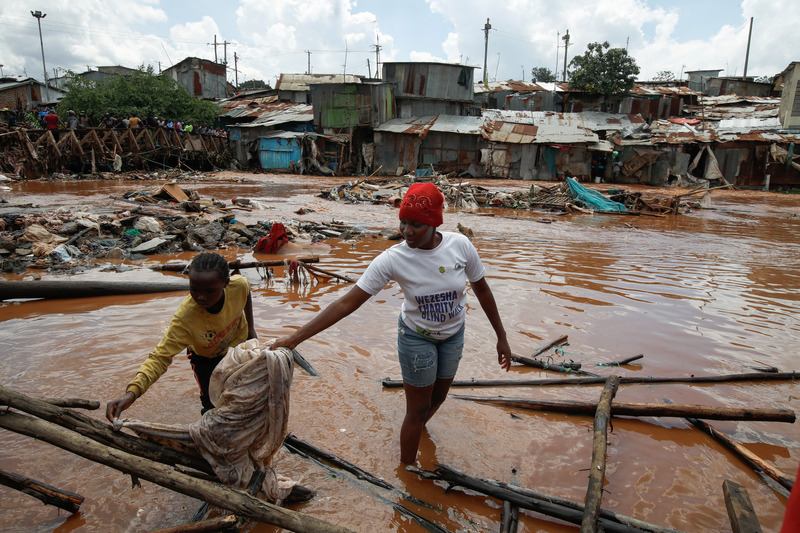Kenya criticised for inadequate response to deadly flash floods

The floods have claimed the lives of over 200 individuals, displaced over 200,000, and resulted in significant damage to property and infrastructure.
Human Rights Watch on Thursday criticised Kenyan authorities in Kenya for their inadequate response to catastrophic flash floods caused by recent heavy rains.
The floods have claimed the lives of over 200 individuals, displaced over 200,000, and resulted in significant damage to property and infrastructure, further exacerbating the socioeconomic vulnerabilities across the nation as stated by Human Rights Watch.
More To Read
- What’s at stake in the COP30 negotiations?
- Major global emitters off track, no country strong enough to meet climate targets - report
- African activists rally and challenge COP30 agenda
- Ethiopia hosting COP32 a ‘win for the Horn of Africa’, IGAD says
- Power utilities raise clean energy investment plans by 26 per cent in major Net Zero push
- Kenya, EU ink Sh4.8 billion deal on environment and climate protection
Human Rights Watch says that the Kenyan government has an obligation to prevent foreseeable harm from climate change and extreme weather and to protect its citizens when disasters occur. This is particularly crucial for marginalised and at-risk groups including older people, those with disabilities, impoverished individuals, and rural communities.
"The unfolding devastation highlights the government's obligation to prepare for and promptly respond to the foreseeable impacts of climate change and natural disasters," stated Nyagoah Tut Pur, Africa researcher at Human Rights Watch.
Kenya and other East African countries have been experiencing relentless downpours exacerbated by an El Niño weather pattern, with recent studies suggesting climate change as a contributing factor.
Despite the government acknowledging the predictability of these extreme weather events, reports from both social media and mainstream media in recent days show that the affected populations have received little to no government support, according to Human Rights Watch.
Their report further says that early warnings by the Kenya Meteorological Department about enhanced rainfall were ignored, and while the government had set aside significant funds for disaster response, there is unclear evidence on the effective utilisation of these funds.
Reports indicated that parliament approved an additional Sh8.2 billion in November for disaster response, yet the implementation of effective measures remained sluggish.
"That same month, the government announced that at least Sh10 billion (about US$80 million) would be released to prepare a nationwide response. The Public Finance Management Act of 2023 requires county governments to set aside 2 per cent of their annual budgets for disaster response. However, the government failed to put in place a timely national response plan. In August 2023, the Ministry of Health started coordinating with county governments to stock up medical supplies and begin cholera vaccinations. But in October, President William Ruto announced, mistakenly, that Kenya would not experience El Niño rains as earlier predicted," the report continues.
They emphasised that by April 24, after nearly a month of continuous heavy rains, President Ruto announced the creation of a multi-agency team to manage the crisis. This came after the death toll had already risen significantly due to floods and landslides across multiple regions.
They highlighted that in Nairobi's low-income neighbourhoods, the flood impact was severe, with numerous reports of homes destroyed and outbreaks of diseases such as malaria, cholera, and diarrhoea.
Top Stories Today

















































